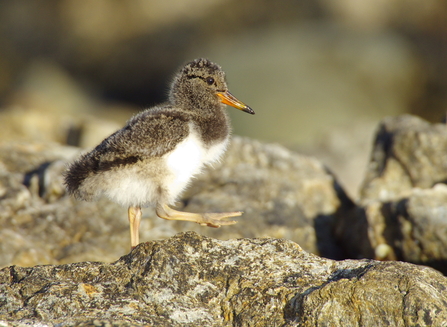Essex Police's Burnham-based marine unit and the rural engagement team are spearheading the initiative – codenamed Operation Seabird – over the summer.
The drive is aimed at raising awareness and educating visitors to the coast how to respect nesting birds and marine wildlife and prevent them from being disturbed. The team will be working alongside Essex Wildlife Trust, RSPB, RSPCA and the Marine Management Organisation. The rural engagement team will patrol the coastline on land while the marine unit will do the same on the water.
Rachel Langley, of Essex Wildlife Trust, said: "The Essex coast is a wonderful place to live and visit – and is also vital for wildlife, such as beach-nesting birds, seals and cetaceans. Essex Wildlife Trust and the RSPB’s Share Our Shores project works to protect Essex’s beach-nesting birds such as the little tern, ringed plover and oystercatcher, which are all sensitive to disturbance. Raising awareness on the coast is essential and the support from the Essex Police marine unit, rural engagement team and other partners is an exciting step to reach even more people. By working together to keep our distance, respect signage and minimise disturbance, we can give these charismatic creatures the best chance.”
PC Jed Raven, of the rural engagement team, said, “We have a fantastic coastline and variety of wildlife here in Essex and we need to make sure they are protected and there for future generations. Our focus is to ensure that the public using these areas can help us to achieve that. By keeping disruption to an absolute minimum, we will help these animals thrive.”
RSPCA spokesman Geoff Edmond said: “Every year, the RSPCA’s wildlife centres have to treat and rehabilitate a wide range of wildlife - including seals - which have been injured or orphaned due to human disturbance. We want people to enjoy watching our marine wildlife - including seals, cetaceans and seabirds - but this should be done at a safe and sensible distance without disturbing the animals. High visibility patrols by the police, the RSPCA will again take place in areas where there are particular problems with disturbance of wildlife. I am delighted to see the Marine Management Organisation joining in with this operation nationally. This will continue to raise awareness and educate people about how vital it is not to disturb our seabird and seal colonies as well as any visiting cetaceans.”
RSPB conservation officer Mark Nowers added: “The response from the Essex Police marine unit and rural engagement team to help our beach-nesting birds has been excellent. Knowing that officers, as part of their regular patrols, are talking to estuary-users around our most important sites for beach-nesting birds, either out on the water or at popular launch points is a great help. We know the value of being outdoors is really important, we just want to ensure that people watch their step and respect any local signage so that these threatened species can breed successfully.”

